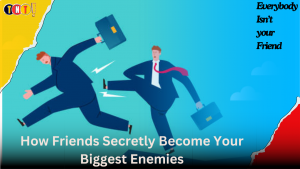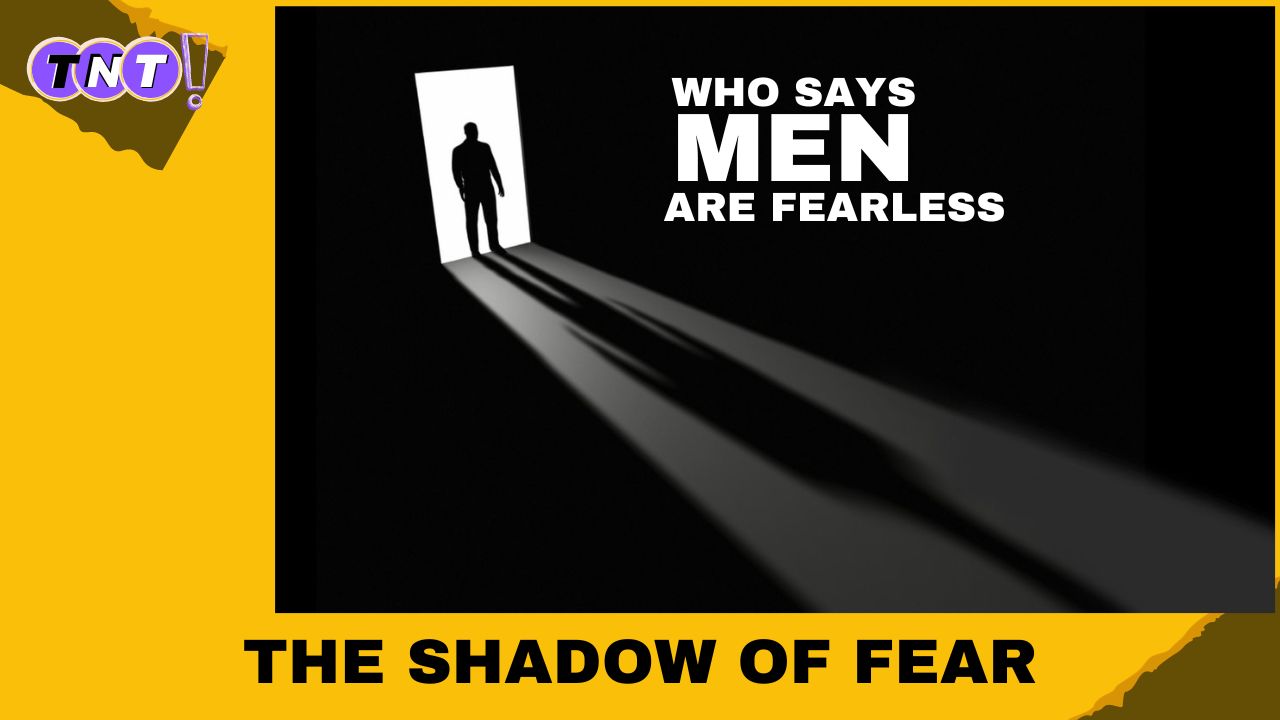How friends secretly become your biggest enemies is so surprising that it can scar many of us. Friendship is often painted as the ultimate safe space a refuge from the harsh realities of life but what of if that friend secretly becomes your biggest enemy, what would you do?

Your friends are the people who stand by you when the world turns against you, right? But what if the real threat comes from within that circle? What if the very people you trust the most are the ones silently sabotaging your progress, growth, and happiness?
In the game of life, it’s not always the obvious enemies you should watch out for. Sometimes, your biggest adversaries are the ones smiling by your side. This is the uncomfortable truth many fail to confront: the reality that friends can be your biggest enemies.
The Silent Art of Betrayal by Friends
Unlike overt enemies, toxic friends don’t announce their betrayal with grand gestures or public confrontations. Their sabotage is subtle disguised as concern, masked as humor, or hidden behind a veil of support. These frenemies are masters of manipulation, blending into your life so seamlessly that you barely notice their damaging influence until it’s too late.
- The Sabotaging Cheerleader
This is the friend who applauds your efforts, but deep down, they’re rooting for your downfall. They’ll smile and congratulate you on that new promotion or relationship but always find a way to insert a subtle dig:
“I’m so happy for you, but don’t you think it’s a little too soon?”
Or, “That’s great, but be careful it sounds like too much pressure.”
Their words may sound like caution or concern, but underneath it lies envy a desire to see you doubt yourself and stumble. - The Backhanded Compliment Giver
These friends love to throw compliments your way, but they always come with a sting. They’ll praise your appearance, but it’ll be something like: “Wow, you look amazing for someone who’s always so stressed!” or “I didn’t know you could pull off a dress like that usually, your style’s more casual.”
Underneath the pretense of flattery, they’re undermining your confidence, planting seeds of insecurity that eventually grow into self-doubt. - The Opportunist
Some friends are only around when there’s something in it for them. They may appear loyal and dependable, but their true motives revolve around how much they can benefit from your success, status, or resources. When they need something a connection, money, or advice they’re at your doorstep. But when the tables turn, and you need support, they’re suddenly MIA. Their friendship is transactional, and you’re nothing more than a stepping stone in their climb to the top. - The Emotional Parasite
These friends thrive on your misery. They secretly love it when things go wrong in your life because it makes them feel better about their own struggles. They might seem empathetic at first, offering a shoulder to cry on or lending an ear. But their comfort comes with an ulterior motive they need you to stay in a place of vulnerability so they can feel superior. When you’re doing well, they’ll subtly stir up drama, encouraging self-pity, and playing up your setbacks to keep you dependent on their validation.
Why Do Friends Turn to Enemies?
Friendships, like any relationship, can be complex and fragile. While most of us strive for genuine connections, certain emotions can twist even the most well-meaning friendships into toxic dynamics.
- Envy and Competition
No one likes to admit it, but envy is often the root cause of betrayal among friends. When one person in a friendship begins to excel, it can trigger deep-seated insecurities in the other. Suddenly, the friend who once supported you starts seeing your success as a reflection of their own shortcomings. This jealousy can lead to passive-aggressive behavior, backstabbing, and subtle attempts to tear you down. - Fear of Being Left Behind
Some friends fear being overshadowed. They worry that your growth will mean the end of your friendship, so they undermine your progress in a subconscious attempt to keep you close. Whether it’s by dissuading you from pursuing new opportunities or planting doubts in your mind, they sabotage your upward trajectory to avoid being left behind in the dust. - Power Struggles
Friendships can also turn toxic when power dynamics come into play. If one friend feels inferior, they may resort to manipulation, guilt-tripping, or even subtle sabotage to regain control. These power plays can be hard to spot at first, as they often come in the form of unsolicited advice or “well-meaning” warnings. However, the underlying intention is to maintain the upper hand by keeping you uncertain and reliant on their guidance.
How to Spot a Frenemy the Signs
Recognizing the silent sabotage in your friendship can be challenging, especially when emotions are involved. However, there are telltale signs that can help you identify a toxic friend before they do irreparable damage to your life:
- Constant Undermining: They always find a way to minimize your accomplishments or inject doubt into your decisions.
- Lack of Support During Success: When things are going well for you, they seem distant, uninterested, or critical.
- Competition Over Cooperation: They constantly try to outshine you or make everything a competition, whether it’s your career, relationships, or personal achievements.
- Drama Magnet: They thrive on drama, often escalating minor issues into full-blown problems, usually to deflect attention from their own shortcomings.
- Selective Availability: They’re always available when they need something from you but are suddenly too busy when the roles are reversed.
Guarding Against Silent Betrayal by Friends
- Set Boundaries
If you notice patterns of toxicity in your friendships, it’s crucial to set clear boundaries. Don’t allow passive-aggressive comments or undermining behavior to slide. Address issues head-on, and if the behavior doesn’t change, distance yourself. Protecting your peace and personal growth should always be a priority. - Trust Your Gut
Intuition is powerful. If something feels off in your friendship, don’t ignore it. Pay attention to how you feel after spending time with certain friends. If you consistently leave interactions feeling drained, insecure, or doubtful, it may be a sign that the friendship is no longer serving your well-being. - Surround Yourself with Positivity
Not every friendship is worth saving. Sometimes, the best thing you can do is walk away from toxic friends and invest your time in people who genuinely want to see you succeed. True friends will celebrate your victories, support your growth, and offer constructive feedback when necessary—not undermine your confidence or happiness. - Embrace Self-Worth
Silent sabotage often thrives in environments where self-doubt exists. By cultivating a strong sense of self-worth and confidence, you’ll be less susceptible to toxic friends’ manipulations. Know your value, and don’t allow anyone friend or foe to diminish it.
Beware of the Friendly Foe
While it’s comforting to believe that our friends always have our best interests at heart, the truth is that friendships can sometimes mask betrayal. Silent sabotage by a trusted friend can be more devastating than any enemy’s direct attack. It’s up to you to stay vigilant, recognize the signs, and protect your mental, emotional, and personal well-being. True friends elevate you, while silent saboteurs try to hold you back. Choose wisely.



